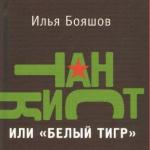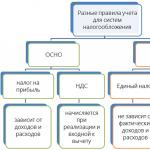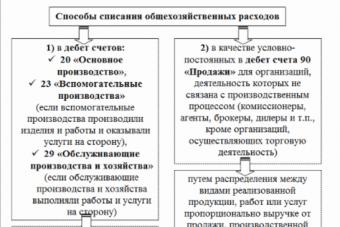A note instructing Russian diplomats to leave the country. This was reported by the local news portal Delfi, citing two unnamed sources, as well as Estonia.
The information about the expulsion of Kazennov and Surgaev from the Republic of Estonia was confirmed by the press secretary of the Estonian Ministry of Foreign Affairs Sandra Kamilova.
“The Estonian Foreign Ministry can confirm that Kazennov and Surgaev will be expelled from Estonia,” Kamilova said, answering the correspondent's question about the delivery of the deportation note to the Russian consuls.
However, a representative of the Estonian diplomatic service refused to comment on the situation in any way or name specific reasons for the decision to expel two Russian consuls from Estonia. The period during which Kazennov and Surgaev must leave the country was not named either.
Representatives of the Russian Embassy in Estonia also said that they would not comment on this situation yet. The adviser of the Russian diplomatic mission in the Republic of Estonia told the correspondent about this.
The Russian Ministry of Foreign Affairs reacted to the information about the expulsion from Estonia of the Russian consuls in Narva, Dmitry Kazennov and Andrey Surgaev. The decision of the Estonian authorities in the Russian diplomatic service was described as another unfounded and unfriendly act of Tallinn towards Moscow.
“This is another unfriendly and unfounded act that will not remain unanswered,” the Russian Foreign Ministry said, commenting on the situation.
Nevertheless, representatives of the Russian Foreign Ministry did not provide any additional details on this matter.
Learning is darkness: fears of Tallinn
This is not the first diplomatic scandal in bilateral relations between Moscow and Tallinn. Thus, in September 2015, Russia and Estonia exchanged intelligence officers convicted of espionage. Then Moscow extradited Eston Kohver, sentenced to 15 years, and Tallinn - Alexey Dressen, sentenced to 16 years. These steps caused a wide resonance, since the Estonian authorities then accused the Russian special services of kidnapping Kohver.
Earlier, the Estonian Ministry of Defense expressed concerns about the joint strategic exercises of the Russian Federation and Belarus "West", which are scheduled for September 2017. This statement was made on April 27 by the head of Estonia, Margus Tsakhkna.
According to Tsakhkna, Estonia and a number of member states have information that Moscow wants to take advantage of the upcoming military exercises in September in order to deploy its troops in Belarus in response to the increased activity of the North Atlantic Alliance along the borders of the Union State.
The head of the Estonian military department also said that the Russian side allegedly plans to send 4 thousand carriages of soldiers and military equipment to conduct the exercises. Back in January, Russia emphasized that the upcoming exercises are of a planned nature, and the Russian Defense Minister said that the scenario of the exercises "will take into account the situation associated with the intensification of NATO activities on the borders of the Union State."
In this regard, Tsakhkna expressed concern that the Russian military contingent might not leave the territory of Moscow's closest military ally after the end of the September exercises.
“For the Russian troops that will be sent to Belarus, this is a one-way ticket,” the head of the Estonian Defense Ministry told the correspondent.
“This is not my personal opinion - we are very carefully analyzing how Russia is preparing for these exercises,” added Tsakhkna.
It is assumed that the exercises "West-2017" will be held at Russian and Belarusian training grounds in two stages. Among the main objectives of the exercises, Russia and Belarus call the improvement of mechanisms for joint planning and tactics of command of troops.
It is worth noting that earlier the President of Belarus invited the Secretary General of the North Atlantic Alliance Jens to attend the exercise as an observer. In addition to Stoltenberg, representatives of the CIS, CSTO and others also received such an invitation.
"He forced himself to respect ..."
The shackle is actually associated with rudeness, only not diplomatic, but state. Everyone has heard the story of the transfer from the center of Tallinn to the military cemetery of the Bronze Soldier, which ended in riots. Nobody drew any conclusions from it, and ten years later the second stage of the memorial war began in Estonia.
So: what keeps Estonians from sleeping well this time?
I tell you: in February 1944, a Soviet bomber crashed near the Estonian village of Ryaza, a crew of three (commander L.V Saltykov, navigator V.M. Mikhalev, gunner-radio operator M.K. Malkova) died.
In 1964, in the presence of the mother of one of the pilots, a memorial stone was erected at the site of the air battle. After the collapse of the USSR, the nameplate was stolen. In 2013, it was recovered with money from civic activists, but in May 2014 it was stolen again.
It became clear that it was better to move the stone to a protected place - otherwise it would be defiled endlessly.
We chose a site - a mass grave in the city cemetery: if you remember, in 2007, Estonian officials all, as one, insisted that a cemetery for Soviet monuments was the right place.
But it was not possible to reach an agreement with the leadership of the city of Kiviõli: the city council deputies were against it, referring to the fact that the pilots died on the territory of another region. What to do - recently " soft power", Even graves are considered dangerous for state security in the Baltic countries ...
In the end, the chairman of the veteran organization of the city of Kivioli Sarkis Tatevosyan, with a wave of his hand, set a stone on his own garden plot. On May 9, 2017, the monument was inaugurated, and after only a week it was desecrated. Someone wrote on it in Estonian: "These killers bombed my grandmother, let them burn in hell."
The Russian Foreign Ministry, represented by Maria Zakharova, made a formidable statement. A couple of days later, two diplomats - the Russian Consul General in Narva Dmitry Kazennov and his deputy Andrei Surgaev came to the mayor of the city Nikolai Voeikin to agree on a civilized transfer.
What happened next - one can only guess. Allegedly, our diplomats talked with the official in unacceptable tones. He forced himself to respect, and could not invent better: he recorded the conversation and presented it to his superiors. As a result, diplomats were ordered to leave the country.
On the night of May 27, the memorial stone was once again desecrated - this time it was filled with resin and oil. Who does this in a city with a population of 5,429 people, of which 60 percent are Russians and 40 percent are Estonians?
It is better to ask about this from the main character of this story - civil activist Sarkis Tatevosyan.

Under the roof of his house
- What is the “private territory” on which there is a monument to the pilots?
This is my home, I live there. The fence of my site overlooks the city street. I "embroidered" it on the border of my territory and placed this stone facing the city. Two video cameras are hanging 20 meters away from him, which with their focus can catch all this chaos. The day before yesterday, I spoke with the police investigating, asking the question: did they study the video of the first desecration on May 16? They explained that they did not have time yet. Since I, being a former criminal investigation inspector of the criminal police, know the city dwellers well, I offered my help. They said they would think about it. And that was the end of it.
- Why did the monument end up on your site?
Initially, we had an agreement to install it at a common burial, I didn’t even discuss the idea of putting it on my own land, there is no place for it there. Mayor of the city Nikolai Voeikin and I agreed to move him to the cemetery, and he gave his consent. And when the car unloaded the stone, I drove up to it and asked to show with my finger the place where to put it, so that it would not cause any comments later. But at the last second, he said: does not allow city management. I had a car ordered, it cost money - to be honest, I did all the work at my own expense, trying to preserve the memory of these guys - the clock was ticking, the car was standing, I had to do something. I unloaded it to my yard. Twice after that he turned to the city administration to give permission to put him in the cemetery. They refused. After that, I had no choice but to install this memorial stone at my house on May 9, restore the engraving and open it. After it was desecrated on the night of May 17, employees of the Russian consulate came to the mayor of the city.

And again, the monument to Soviet pilots fell victim to vandals ...
- And what - Voeikin, as the Estonian newspapers hint, recorded the conversation?
I have absolutely no doubts about this possibility. Just like the fact that our diplomats came there with the aim not to call him, but to call for prudence. Namely: to place a memorial stone at a common burial, where nationally preoccupied people do not go, but those to whom it is valuable go to pay tribute to the memory.
- What could Russian diplomats say that might have seemed offensive to the mayor of your city?
I was not present during the conversation, they met without me. Before that, we looked at this burial together with them, I showed the options, because it is technically very difficult to install a nine-ton stone in the middle of the cemetery. And together they came to the conclusion that there is no other place than a mass grave. I have never met such bright and positive people as they are among diplomats, and I have great sympathy and regret for the actions of the Estonian state, which has chosen this way of resolving the issue.
Your own among strangers, a stranger among your own?
And yet: could the employees of the Russian consulate general speak with the mayor of a city the size of half a Moscow street in a raised voice? They could - if they perceived him as their like-minded person. And he probably did not consider himself as such ...
No one has yet been able to reach the direct participants in this story - Nikolai Voeikin and diplomats Dmitry Kazennov and Andrey Surgaev. Therefore, you have to be content with the information that is. This is what the anti-fascist and formerly one of the leaders of the Russian community, Andrei Zarenkov, wrote on his Facebook page:
“Well, they would ask me who Nikolay Voeikin is - the mayor of Kiviõli, I would tell a lot about this person ... (volunteer paramilitary organization - G.S.) , he was taking crying mothers with children off trains when Estonia announced a visa regime. Well, who would tell the consul who Voeikin is and how many people he handed over ... "
"He forced himself to respect ..."
The scandal is actually connected with rudeness, only not diplomatic, but state. Everyone has heard the story of the transfer from the center of Tallinn to the military cemetery of the Bronze Soldier, which ended in riots. No one drew any conclusions from it, and ten years later the second stage of the memorial war began in Estonia.
So: what keeps Estonians from sleeping well this time?
I tell you: in February 1944, a Soviet bomber crashed near the Estonian village of Ryaza, a crew of three (commander L.V Saltykov, navigator V.M. Mikhalev, gunner-radio operator M.K. Malkova) died.
In 1964, in the presence of the mother of one of the pilots, a memorial stone was erected at the site of the air battle. After the collapse of the USSR, the nameplate was stolen. In 2013, it was recovered with money from civic activists, but in May 2014 it was stolen again.
It became clear that it was better to move the stone to a protected place - otherwise it would be defiled endlessly.
Photo by Sarkis Tatevosyan
We chose a site - a mass grave in the city cemetery: if you remember, in 2007, Estonian officials all, as one, insisted that a cemetery for Soviet monuments was the right place.
But it was not possible to come to an agreement with the leadership of the city of Kiviõli: the city council deputies were against it, referring to the fact that the pilots died on the territory of another region. What to do - recently, even graves are considered "soft power" dangerous for state security in the Baltic countries ...
In the end, the chairman of the veteran organization of the city of Kivioli Sarkis Tatevosyan, with a wave of his hand, set a stone on his own garden plot. On May 9, 2017, the monument was inaugurated, and after only a week it was desecrated. Someone wrote on it in Estonian: "These killers bombed my grandmother, let them burn in hell."
The Russian Foreign Ministry, represented by Maria Zakharova, made a formidable statement. A couple of days later, two diplomats - the Russian Consul General in Narva Dmitry Kazennov and his deputy Andrei Surgaev came to the mayor of the city Nikolai Voeikin to agree on a civilized transfer.
What happened next - one can only guess. Allegedly, our diplomats talked with the official in unacceptable tones. He forced himself to respect, and could not invent better: he recorded the conversation and presented it to his superiors. As a result, diplomats were ordered to leave the country.
On the night of May 27, the memorial stone was once again desecrated - this time it was filled with resin and oil. Who does this in a city with a population of 5,429 people, of which 60 percent are Russians and 40 percent are Estonians?
It is better to ask about this from the main character of this story - civil activist Sarkis Tatevosyan.
Under the roof of his house
- What is the “private territory” on which there is a monument to the pilots?
This is my home, I live there. The fence of my site overlooks the city street. I "embroidered" it on the border of my territory and placed this stone facing the city. Two video cameras are hanging 20 meters away from him, which with their focus can catch all this chaos. The day before yesterday, I spoke with the police investigating, asking the question: did they study the video of the first desecration on May 16? They explained that they did not have time yet. Since I, being a former criminal investigation inspector of the criminal police, know the city dwellers well, I offered my help. They said they would think about it. And that was the end of it.
- Why did the monument end up on your site?
Initially, we had an agreement to install it at a common burial, I didn’t even discuss the idea of putting it on my own land, there is no place for it there. Mayor of the city Nikolai Voeikin and I agreed to move him to the cemetery, and he gave his consent. And when the car unloaded the stone, I drove up to it and asked to show with my finger the place where to put it, so that it would not cause any comments later. But at the last second, he said: does not allow city management. I had a car ordered, it cost money - to be honest, I did all the work at my own expense, trying to preserve the memory of these guys - the clock was ticking, the car was standing, I had to do something. I unloaded it to my yard. Twice after that he turned to the city administration to give permission to put him in the cemetery. They refused. After that, I had no choice but to install this memorial stone at my house on May 9, restore the engraving and open it. After it was desecrated on the night of May 17, employees of the Russian consulate came to the mayor of the city.
And again, the monument to Soviet pilots fell victim to vandals ...
- And what - Voeikin, as the Estonian newspapers hint, recorded the conversation?
I have absolutely no doubts about this possibility. Just like the fact that our diplomats came there with the aim not to call him, but to call for prudence. Namely: to place a memorial stone at a common burial, where nationally preoccupied people do not go, but those to whom it is valuable go to pay tribute to the memory.
- What could Russian diplomats say that might have seemed offensive to the mayor of your city?
I was not present during the conversation, they met without me. Before that, we looked at this burial together with them, I showed the options, because it is technically very difficult to install a nine-ton stone in the middle of the cemetery. And together they came to the conclusion that there is no other place than a mass grave. I have never met such bright and positive people as they are among diplomats, and I have great sympathy and regret for the actions of the Estonian state, which has chosen this way of resolving the issue.
Your own among strangers, a stranger among your own?
And yet: could the employees of the Russian consulate general speak with the mayor of a city the size of half a Moscow street in a raised voice? They could - if they perceived him as their like-minded person. And he probably did not consider himself as such ...
No one has yet been able to reach the direct participants in this story - Nikolai Voeikin and diplomats Dmitry Kazennov and Andrey Surgaev. Therefore, you have to be content with the information that is. This is what the anti-fascist and formerly one of the leaders of the Russian community, Andrei Zarenkov, wrote on his Facebook page:
“Well, they would ask me who Nikolai Voeikin is - the mayor of Kiviõli, I would tell a lot about this person ... (volunteer paramilitary organization - G.S.) , he was taking crying mothers with children off trains when Estonia announced a visa regime. Well, who would tell the consul who Voeikin is and how many people he handed over ... "
Living and dead Russians - an endless threat to the Baltics
I reread the news several times, I can’t believe my eyes. I rub my eyes, reread them again, and then hit myself on the hands: enough is enough!
Stop commenting on the spring aggravations. Stop clinging to the Baltics - let him live as he lives. Stop promoting other people's nonsense.
From time immemorial, from the Sobkorov era, I have had a bad habit - to start the morning with a cursory view of the news from the shores of the Baltic. Very tonic, instead of gymnastics for the brain. You will make sure that everything in these territories is normal (Russia still has not attacked, another NATO foreign battalion has arrived, the population is trained to hide food and water supplies in the forest, everyone, including Syrian refugees, fled after the emigrants, and so on) - and you can go to the news from another insane asylum.
I thought I'd look at the headlines with one eye, and that's it. But then suddenly I was hooked: so much so that the third day I can not calm down. We'll have to share with everyone.
Trojan horse
So, we read together, by syllables, the title: "Soviet legacy in Lithuania, which could become a Trojan horse."
What, I think, this time the conversation? Maybe about some Sports Palace built during the "occupation" time? Or a district cinema of the seventies design? Or - it's scary to think! - about the capital of Lithuania, Vilnius, which is also a "Soviet legacy"?
The truth turned out not to be more banal or more frightening. Incredible!
I mean, imagine, the graves of Soviet soldiers who liberated Lithuania from the Nazis ...
For a long time it was believed that there are 80 thousand of them. Now that the search engines have joined the work, they are talking about another figure - 137,000.
“Why in recent times is their number growing? " - the journalist of the Delfi portal asks an alarming question. And it tells about the monograph written by the scientists of Vilnius University Salvijus Kulevičius and Norbertas Cernyauskas: "Warriors. Concrete. Myth: burial places of Soviet soldiers during the Second World War in Lithuania."
Everything in this monograph is so beautiful that it is not a sin to quote it in whole paragraphs. It's just that I can't compose myself like that ... So: cemeteries are a "Soviet legacy". And the fact that Russia has been caring for them since 2000, adding new names to the lists on mass graves is very suspicious. By this “they want to show how many victims there were for the“ liberation of Lithuania ”from the Germans. The burial places are considered to be islands supporting the myth of the soldiers-liberators, and not the new occupiers, as they are estimated in Lithuania. " The burial sites themselves, according to Lithuanian scientists, “can become a programmed problem. Since in Soviet times, many of these facilities were set up in strategic places - in the central squares of cities and towns ... Such places can become a Trojan horse for the spread of ideology and anti-state policy. "
We translate into common human language: not only living Russians are dangerous, but also the dead. And even the flowers brought to these graves are not flowers at all, but a powerful propaganda material.
From the article breathed something satanic. Approximately the same as it smelled 10 years ago in Tallinn, which got rid of the “Soviet legacy” in the form of the Bronze Soldier, the first of the three Baltic states, digging up 13 dead along the way and losing part of the bones on the way to the Military Cemetery.
In general, the trend is clear. This is even more abruptly than the previous masterpiece that came out of the mouth of the ex-Minister of Defense of Lithuania Rasa Yuknevičienė: “Chekhov is also soft power” ...
Your tongue is my enemy
Russians can be dead or alive, the methods of fighting both the first and the second in the Baltics have long been known, tried and tested. But there is also the Russian language, which has not yet been destroyed. The bottom is not visible here. At all.
Here is some news from Latvia: the Seimas passed in the first reading and submitted to the commissions a bill, which significantly increases the fines for “unjustified use of other languages”. That is, the mayor of Riga, Nil Ushakov, who in April paid 50 euros for answering Russian children in Russian at an informal meeting with schoolchildren - next time he will pay all 700 ... He, you see, had to pretend that he did not understand native language and be explained by signs.
And here is an article from Estonia, in which just these days they are discussing a future song festival, born in tsarist times and treated kindly in Soviet times - all in order to preserve the fragile culture of a small but proud people. "How many Estonians will not come to the song festival if a song is played there in Russian?" - the conductor and singer Veronica Portsmouth asks without a shadow of irony. And argues:
“We have been forced to keep our culture under lock and key for decades. A clear physical example is the national blouse in my closet, which my grandmother secretly kept in the cellar and secretly gave me. In order for me to remember and preserve ”.
At first, I feel sick of lies about a blouse allegedly forbidden in the USSR, and then paralyzes with arrogance: at a holiday held with state money collected from taxes, including 30 percent of Russians living in Estonia, it is not allowed to perform one (!) Song in Russian language! Well, in the end it naturally turns out. And thank God - this is an indicator that at least everything is all right with you.
Once the first president of the revived Republic of Estonia, Lennart Meri - a writer who loved extravagant statements - in some creative impulse called the Baltic states "the border of the civilized world."
It seems that over the years this phrase has acquired a new meaning ...
Galina Sapozhnikova, Estonia
S. Tatevosyan:
When I learned about this event, the decision to expel diplomats, I was with compatriots from Estonia in Ivangorod at a meeting on the line of public diplomacy. I received a call that Russian diplomats from the Consulate General in Narva are being expelled from the country in such a despicable manner. Against the backdrop of attempts by public diplomacy to establish ties, there is a "splendid" example of diplomacy of winding up relations on the part of our country.
The anti-Russian product produced by Estonia is not in great demand today, no one will buy it. Previously, it was bought by our cartridge - the USA, but now they do not need it. Russia doesn't need us anyway. And under these conditions, only idiots can still try to cut the branch on which we are sitting!
The tension in Estonian-Russian relations is not beneficial to the residents, citizens of our country, except for the special services and a handful of politicians who use it for their own selfish political purposes.
Of course, the mayor of Kiviõli Voeikin did not make a decision to expel diplomats from the country - the decision was made by the Minister of Foreign Affairs, who consulted with his foreign advisers. I am primarily interested in the Estonian people, which do not need cooling, it harms them, including in the economic sense. Because instead of good-neighborly relations, to have enmity with a strong neighbor is complete irresponsibility!
The situation with the expulsion of the Russian Consul General of Russia in Narva Dmitry Kazyonnov and his deputy, Consul-Counselor Andrei Surgaev from Estonia. According to Nosovich, it will be possible to speak with certainty about the reasons for such an act when (and if) the Estonian side provides an explanation of its decision. But it is already clear what political signal the Estonian authorities are sending by the deportation of Russian diplomatic workers.
“On July 1, the Republic of Estonia begins the term during which it will be the President of the EU Council. Formally, this means Estonia's leadership in the European Union, in reality - the right to influence the policy of "United Europe", proposing the priorities of its presidency in the EU. Including priorities, the chair country proposes in the field of foreign policy... In the case of the Baltic states, the foreign policy priorities of the presidency were relations with Russia and the EU's Eastern Partnership program. A major interstate scandal between Tallinn and Moscow on the eve of the start of the Estonian presidency in the European Union demonstrates that the Estonian presidency will continue the traditions of the Lithuanian 2013 and Latvian 2015: it will be extremely hostile and destructive towards the Russian Federation, and will destroy the dialogue between Russia and the EU. Until now, in a narrow part of the Russian academic and expert circles dealing with the Baltics, there was a glimmer of hope that Estonians are more rational and constructive in relation to the diplomacy of Lithuania and Latvia. The current scandal, in my opinion, will show that these hopes are untenable, ”Nosovich emphasizes.
We add that the chairman of the Union of Russian Citizens of Narva Gennady Filippov expressed surprise at the decision of the Estonian authorities to expel Russian diplomats. He told the Sputnik Estonia portal that he had never heard any offensive words in relation to the host country in the speeches of the employees of the Russian Consulate General. Moreover, according to Filippov, the activities of the Russian foreign policy mission in Narva were aimed at developing good-neighborly relations between neighboring states, as well as strengthening relations between the Estonian and Russian communities of Estonia. The head of the Union of Russian Citizens recalled that with the assistance of the Russian Consulate General, cultural figures from St. Petersburg, in particular, representatives of the State Hermitage and the Pushkin House of the Russian Academy of Sciences, delivered lectures at the May Readings, which have already become traditional in Narva, held at the University of Tartu. on Russian history, as well as on the history of the Russian language, literature and culture. Such lectures, according to Filippov, were also interesting to the representatives of the Estonian community of Narva and contributed to the strengthening of trust between different nationalities... “Someone, apparently, did not like it,” is the opinion of Filippov.
“I had to contact the Consulate General on various topics related to the life of Russian citizens. And he always found understanding. All issues were resolved promptly and without bureaucratic delays, ”explained Gennady Filippov. He specified that about fifty thousand citizens of the Russian Federation live in the territory served by the Consulate General in Narva. Narva city council deputy Larisa Olenina also said that the news of the expulsion of diplomats came as a surprise to her. “Throughout the activities of Dmitry Alexandrovich Kazyonnov and Andrey Sergeevich Surgaev in Narva, we worked with us in the cultural field and in other areas, including in the development of youth ties and in helping our veterans,” said the municipal politician. Former chairman Of the Narva Energy Trade Union, and now a member of the Coordination Council of Russian Compatriots in Estonia, Vladimir Alekseev, emphasized that he has great respect for the activities of Consul General Dmitry Kazyonnov and Consul-Counselor Andrei Surgaev. “These are real diplomats. They helped Russian citizens and compatriots a lot. I do not believe that they could have done something inappropriate from the point of view of diplomatic ethics, ”Alekseev said.
Meanwhile, on the air of the Estonian TV channel ETV + a version sounded that the expulsion of Russian diplomats was not connected with their participation in "espionage activities", as previously assumed. According to the sources of the TV channel in the north-eastern region of Estonia, Ida-Virumaa, Kazennov and Surgaev recently met with the mayor of the city of Kivioli Nikolai Voeikin, and their conversation took place in a "disrespectful tone" towards the official. Sources claim that the conversation was recorded, and allegedly this recording became the main reason for the expulsion of the diplomats. It is reported that the conversation was about a recent high-profile incident - in Kiviõli on the night of May 16-17, on a memorial stone in memory of the crew of the Soviet Pe-2 bomber, which was shot down over Estonia in 1944, an inscription appeared in Estonian: “These killers bombed my grandmother, but they burn in hell! ".
Sources of the portal Delfi.ee report that during the meeting between Kazyonnov, Surgaev and Voeikin, the issue of transferring the monument from the private land belonging to the local resident Sarkis Tatevosyan to the city cemetery was discussed. In the opinion of Russian diplomats, the monument at the cemetery would not have been a target for vandal attacks. In turn, Voeikin argued that the monument was connected not with Kiviõli, but with the Lyuganuse volost, on the territory of which the bomber shot down during the war fell - and therefore the monument should not be transferred to the city cemetery. Public figure Andrei Zarenkov confirmed on the social network: “Mayor of Kivioli Nikolai Voeikin is a very difficult person. He records everyone who comes to him. When he was mayor of the city of Maardu for a short time, he did a lot against the Russians. Voeikin is the former head of the Harju branch of the Defense League militia, and the current Arkhipov is his protege and protégé.





